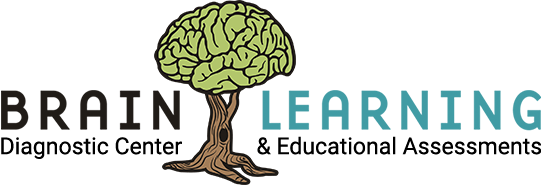The thief of happiness: Helping your child cope with Anxiety.
Anxiety is an emotion characterized by an unpleasant state of inner turmoil. It is the subjectively unpleasant feelings of dread over anticipated events. Anxiety is not the same as fear, which is a response to a real or perceived immediate threat. Anxiety is the expectation of future threat. While moderate levels of anxiety are essential to successfully performing life’s everyday functions, too much can negatively affect the way that children learn. Determining where your child’s anxiety levels are and what the causes are will serve as the beginning to helping your child take control of nervousness and all the consequences that come along with such feelings. Today there many researched based techniques that can be given to students so that they can begin to take control of their thoughts and feelings and have success in school and life.
Anxiety is a normal reaction to stress and can actually be beneficial in some situations. For example when a student knows that a school test will be given on Friday, moderate amounts of anxiety can cause the student to become more aware and facilitate the student to study and prepare for the test. If the child has no anxiety little to no anxiety in this situation, he might not think about the test or care about the outcome thereby no preparation would take place. Small amounts of anxiety are essential for everyday functioning. Anxiety helps teenagers plan ahead for future experiences and expectations.
Anxiety can also rob a student of happiness, sleep, and attention, just to name a few. When anxiety becomes so overpowering, the cognitive or thinking part of the brain can’t provide help in solving problems. Students in these situations become helpless and begin to feel as if they have no control over their lives. Many children with severe anxiety also experience a depressed mood. Severe anxiety goes against what every teenager desires; independence and control. When teenagers can’t experience these feelings due to severe anxiety, they can become angry and frustrated.
The problem isn’t when a student is anxious in a stressful situation, but rather when the student is anxious before the situation ever happens.
Researchers who studied the neuropsychology and physiology of US NAVY SEALS discovered 4 simple strategies to help reduce stress and anxiety. At Brain Learning we have adopted this model in treating children with anxiety disorders thinking problems. We have worked with schools and parents to promote and reinforce the usage of 4 simple strategies to help children and adolescent learners in schools.
- Goal Setting to bring structure to chaos. The ability to reason and plan keeps the fear response in check. Children, who have goals and a direction in life, are able to see through the rough times.
- Mental Rehearsal or Visualization is practice for your mind and body so the reality matches your vision. Running the scenario through in your child’s mind allows it to come more naturally and it allows the body to have a less stressful reaction. Have your child close his eyes and “see” the situation or event. Once he can take himself through the situation, when he actually experiences it he will feel more capable.
- Self-Talk especially positive self-talk, can override the brain’s fear response. According to The Human Brain documentary, we talk to ourselves between 300 and 1,000 words a minute, and when we use positive instead of negative words and thoughts; it will help override the fear signal that originates in the brain. At Brain Learning we train our clients to say things like, “I can, I can, and I will.” Changing the mental script will allow your child to say, “yes” to challenges, instead of saying “no.”
- Arousal Control through slow, deep breathing can enhance brain activity. Long exhales gets more oxygen to the brain and allows us to make better decisions. When we are stressed we take shallow and short breaths and stop using the thinking part of our brains. Children who experience severe anxiety don’t naturally take charge of their physiology. Training in this area is simple but essential.
Treating anxiety doesn’t have to mean just taking a pill. Teaching children and adolescents how to manage themselves will allow them to manage life. When teenagers have control of aspects of their life, they feel better and want to strive. For some children learning skills such as reading, writing, and math aren’t the only things essential to master in school.
Rienzi Haytasingh
Brain Learning Psychological Corporation

